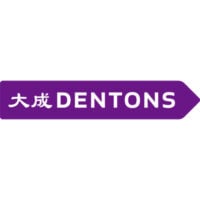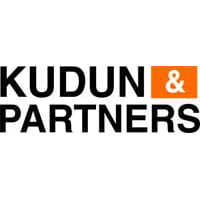
China 2019

Deputy general counsel | Tencent Holdings





Richard Pu
Deputy general counsel | Tencent Holdings
Partner; head of projects and infrastructure practice and leader of Latin American transactional group | Jones Day
Number of years practice: 27 Principal practice areas: Banking, finance and securities, projects and infrastructure, energy Bar admissions: Florida, New York Languages spoken: English, Spanish Richard Puttré has more than...
Over the last two years I have overseen around 600 M&A deals, 30 IPOs of our portfolio companies and various financing matters. Among those, we worked with China Literature to acquire New Classics Media, a leading Chinese content studio that produced some of the most popular Chinese TV series. This US$770m deal was very complicated and required seamless execution efforts. The spin-off of Tencent Music Entertainment (TME) from Tencent Holdings and its subsequent listing on NYSE in December 2018 is another important transaction to note. It raised around US$2bn and involved processes of both the Hong Kong Stock Exchange and the New York Stock Exchange. Recently, we successfully increased the size of our Tencent Global Medium Term Note Programme from US$10bn to US$20bn and issued US$6bn notes in April 2019. It’s one of the largest debt issuances this year so far. In addition, we worked with our fintech team to obtain the Hong Kong virtual bank license in May 2019, a milestone for Tencent’s international fintech efforts.
Probably in two ways. Specialisation of in-house legal counsel in their own areas will become necessary as big companies become even bigger and their business teams demand quicker and more professional legal advice from in-house legal teams, often tailored to address their unique business needs. This would require in-house legal counsel to specialise in particular areas. For example, in-house privacy lawyers would need to be specialised and able to apply fast changing privacy law, such as GDPR, to their own business units. On the other hand, as big companies’ business become more diversified, in-house lawyers would have to keep expanding their scope of work and knowledge to cover more areas. The ability to adapt to new challenges to become multidisciplinary lawyers will be key for a successful in-house legal career.
Modernisation of privacy laws in various countries has had an increasing impact on tech companies. These new laws tend to require intense internal resources to fine tune existing privacy protection protocol in order to fully comply. In the short to medium term, supply of competent and experienced privacy lawyers will be very limited, causing companies to struggle with their compliance. For management, achieving cost efficiency has become increasingly important. This will have apparent influence on our recruitment and legal budget control. Flexible billing arrangement with external law firms will become common.
In the public service area. In 2018 I was nominated to become a member of the Hong Kong Stock Exchange Listing Committee. It is a great honour to serve the Hong Kong public in this fundamental Hong Kong capital market regulator.
Recent regulatory tightening up throughout various tech spaces, such as fake news, cyber securities and OFAC sanctions, have impacted tech companies. As extra resources need to be applied internally to comply with new regulations, in-house lawyers need to constantly broaden their scope of knowledge and practice to provide competent legal services. In China, recent proposals in the financial regulatory regime have kept the team busy understanding how and what they mean to the business.
Open-mindedness is the ability needed to understand the ever changing business needs and find appropriate legal solutions accordingly. It also means the ability to tap into new areas of law since companies in tech space tend to try new businesses from time to time, which are out of the ordinary comfort zone of in-house lawyers. For instance, media law hasn’t been part of a typical in-house lawyer’s skill set in internet companies until some companies started to make their own TV series and movies. In-house legal teams would need to learn and act very quickly to provide professional legal advice in the media area. Another key quality is the ability to communicate skilfully to peers, business teams, and management. This is an additional ability which a successful in-house lawyer would need to develop over time. Different communication techniques, including the skill to manage expectations, would apply to different internal stakeholders.
Yes we do. In addition to legal tech tools we developed internally, we use external solutions as well. It’s extremely important for legal management in terms of knowledge and transactions management. In this regard, in-house legal management shares the same need as law firms.
FOCUS ON… Is stable coin the future of digital currency? Cryptocurrencies have been a popular topic for investment and discussion for some time. Recent development include Libra which has attracted a huge amount of attention throughout the world from all walks of life. Regulators and businesses are studying what stable coin means for them and common people wonder what it would bring to their daily life. How would it fit in the fiat currency regimes? How would it impact traditional account-based banking systems that are established around the world? It is still full of uncertainties and challenges but definitely will remain controversial for some time. It has nonetheless shown what a potential future digital currency would look like.